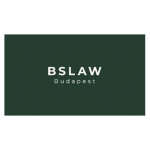Stewarts’ Mo Bhaskaran and Pia Mithani discuss the huge growth in international fraud
Fraud thrives in systems that permit secrecy and anonymity. Technological innovation and the continued growth of international trade are allowing fraudsters to use increasingly opaque and complex techniques. The globalisation of finance has allowed such activities to grow to jaw-dropping levels.
Large-scale international fraud depends on an expanding network of international third-party enablers such as banks, investment firms and other advisers. This development of an ecosystem of culpable third-party facilitators demonstrates how vulnerable the global financial system is to fraud and financial crime.
International fraud: the fragility of global financial systems
The use of complex international corporate and trust structures to both commit fraud and hide ill-gotten gains is not new. However, the sophistication and extent of these tactics continue to move on.
The English courts are well equipped to tackle the numerous complexities of international fraud and to apply foreign laws where required, provided a good, arguable case can be made out against an anchor defendant domiciled in the UK. Recent cases concerning wealthy individuals who split their residence across multiple countries can create complexity in ‘anchoring’ a primary defendant, but the English courts have adopted a pragmatic approach to this issue. In Tugushev v Orlov [2019] EWHC 645 (Comm), the court conducted a fact-based enquiry into the substantive activities and connections of the anchor defendant to the UK, deciding not to focus simply on how long that defendant spent in the jurisdiction.
International fraud cases often involve culpable third-party foreign enablers against whom recoveries and evidence can be obtained. The European and common law regimes, which permit foreign third-party defendants to be joined to an English claim against an anchor defendant, are crucial when seeking to hold foreign third-party enablers to account in complex international fraud cases.
‘Disclosure and interim asset restraint relief are vital tools to unpick the carefully laid structures of anonymity and secrecy used to hide wrongdoing.’
Engaging English jurisdiction is one of the first milestones in an international fraud case and is often used by defendants to obfuscate and delay the progression of claims. The courts have expressed some frustration at cases of the tail wagging the dog in this way, for example, in the Supreme Court decision of Vedanta Resources plc v Lungowe & Ors [2019] UKSC 20. In the judgment, Lord Briggs commented that costs sanctions may be the only way to ensure litigants adhere to the frequent judicial emphasis of the need for litigants to act proportionately.
Jurisdiction in international fraud cases will continue to test the English courts. Practitioners need to be aware that while the English courts have stressed the need for proportionality and to avoid state trials at an early stage, claimants are expected to present a fair case to satisfy the court that proceedings can be served out of the jurisdiction where permission is needed. Service out applications are usually conducted on a without-notice basis, and the case of The Libyan Investment Authority v JP Morgan & Ors [2019] EWHC 1452 (Comm) provides a cautionary tale for those who fail to comply with their duties of full and frank disclosure.
Asset protection
Disclosure and interim asset restraint relief are vital tools to unpick the carefully laid structures of anonymity and secrecy used to hide wrongdoing. Worldwide freezing orders and accompanying asset disclosure are well known. So too is the ability to obtain wider tracing relief in the context of proprietary claims.
While draconian, interim relief nevertheless has its limitations. For example, in FM Capital Partners Ltd v Marino & Ors [2018] EWHC 2889 (Comm), the Court confirmed that the assets of a third party, including those of a company controlled or owned by a respondent, will not automatically fall within the scope of a standard freezing order. However, if it can be shown that the company is merely a nominee vehicle for the respondent, there are ways to pierce the corporate veil.
A defendant is entitled to have living expenses assessed based on their lifestyle prior to the freezing order, even if that lifestyle is lavish and the defendant is accused of a substantial fraud.
On the issue of carve outs, the Court of Appeal in Vneshprombank LLC v (1) Georgy Ivanovich Bedzhamov [2019] EWCA Civ 1992 confirmed that while allowances for living expenses will be fact sensitive, a defendant is entitled to have living expenses assessed based on their lifestyle prior to the imposition of a freezing order, even if that lifestyle is lavish and the defendant is accused of a substantial fraud. Asset disclosure is also not unlimited. It is well established that in cases of freezing orders, the purpose of ancillary disclosure is to enable the freeze to be policed and not to reveal wider information for other purposes in fraud litigation (PSJC Commercial Bank Privatbank v Kolomoisky [2018] EWHC 482 (Ch)).
These limitations are not so acute where a claimant can assert proprietary claims against a defendant and can obtain more invasive proprietary relief. What is meant by ‘property’ has become a testing question for the courts, particularly in the age of digital assets borne out of technological advancements. The English courts have adopted a progressive approach to this development. Recently, the courts have recognised that cryptocurrencies may constitute personal property and, therefore, be amenable to proprietary injunctions and remedies (for example, asset preservation orders over Bitcoin in the case of Robertson v Persons Unknown, unreported).
Future challenges
When dealing with fraud cases, knowledge is power. Gathering evidence through early relief and pursuing the wider ecosystem of third parties involved in fraud will remain a cornerstone of this practice area. In the most serious cases, this requires international co-operation. Parallel criminal proceedings in the context of civil asset recovery can present opportunities in this regard. In the UK, the Unexplained Wealth Order as a state civil recovery tool with extraterritorial effect may offer some scope for co-operation with civil asset recovery practitioners, but this tool has not been used enough to judge its efficacy.
This article was written by:

Mo Bhaskaran
Partner

Pia Mithani
Senior associate














